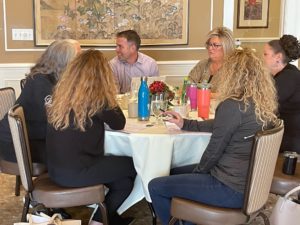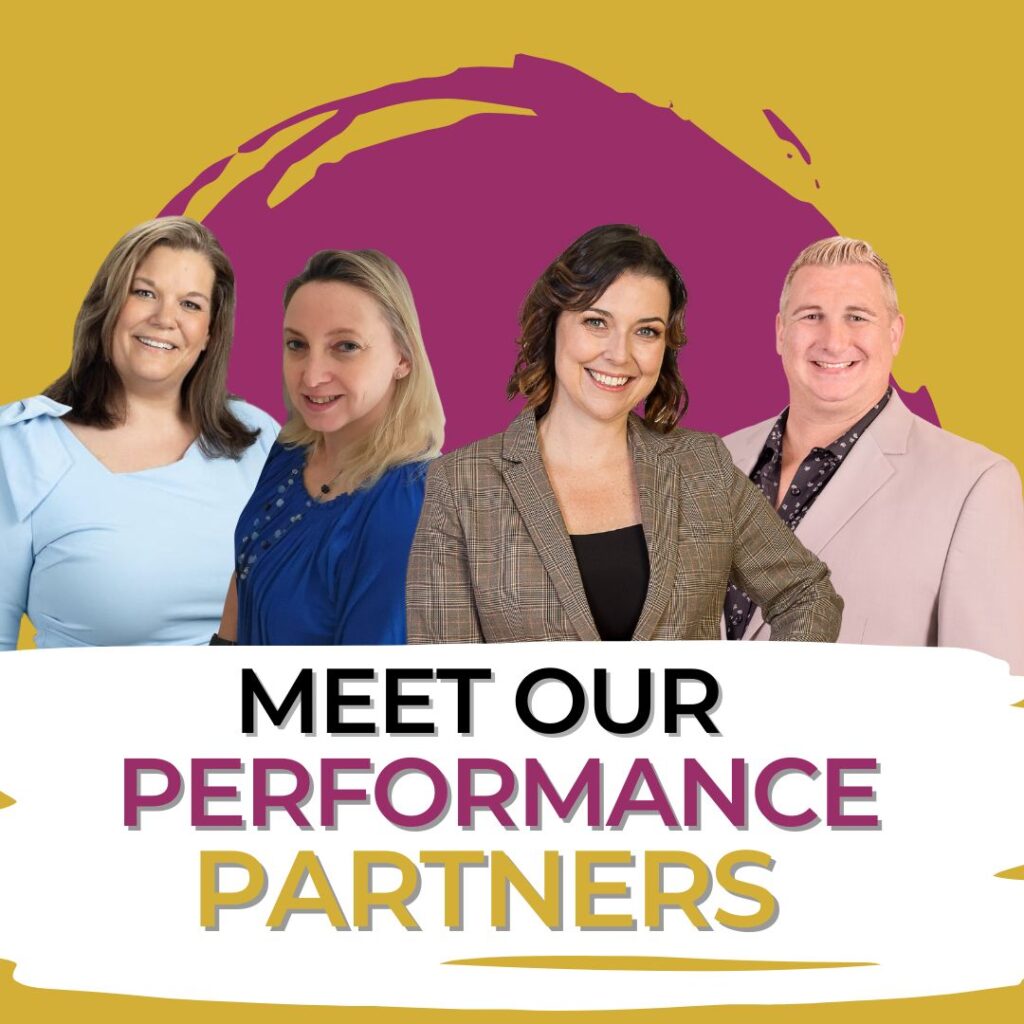Insurance Customer Service Representative Training is a necessity to drive agency growth. In many insurance agencies, we train insurance customer service representatives on the system, carrier, and transactions. However, we miss the opportunity to train them in customer service soft skills. The reality is that it’s the littlest of details that can leave an impact and impression on your clients. If you want to give WOW Customer service, it’s important, you provide your team with the right training. Let’s review just a few examples of how a well-trained insurance customer representative team can make a big impact!
- Chick-Fil-A – They say my pleasure rather than thank you
- Starbucks – They greet you when you walk in and use your name on your cup
- Ritz Carlton – Instead of saying “We’re booked.“, they say, “We’re fully committed.“
- Nursing Homes – They don’t use the word patients. They’re residents
- Marriott – They call their clients guests rather than customers
The smallest details of customer service can make the biggest impact. Leadership must set the strategy, train the team and hold them accountable.
“Customer service shouldn’t just be a department, it should be the entire company.” – Tony Hsieh
APP Update






How to Provide Insurance Customer Service Representative Training
If you are like many insurance agencies training your customer service representative team may come second to many other activities. But should it? The insurance customer service representative team is the heart and soul of the agency. When they are loving and serving customers everything works a lot better. We want to provide you some tips on how to provide insurance customer service representative training.
- Include training in team meetings: : When you have team meetings, make sure that you include 10-15 minutes of customer service training.
- Coaching Meetings: We strongly believe in having coaching meetings with your team, ideally weekly but at a minimum every two weeks. In these meetings, you can bring in training tips and tricks.
- Training Days: What can be more important than really training your team? Your payroll is your agency’s biggest investment. Investing in your team will have a ripple effect on your results.
- Webinars and Videos:As you attract new team members, you want to have a strong onboarding process where you can show them the right way upfront. Consider our Agency School and WOW Customer Service Training Course.
- Work with a training firm: There are training companies that specialize in training your team. Take a look at the Agency Training Plan with APP.
“I’ve learned that people will forget what you said, people will forget what you did, but people will never forget how you made them feel.” –Maya Angelou
10 Things To Never Say on A Customer Service Call
As you provide insurance customer service representative training here are the 10 things we recommend you avoid saying on any call.
- That’s not something I can help you with: While you may not be the person who will help the insured, you still work for the agency. When you say that is not something I can help you with, you are holding the client out to dry. This can also be a trigger to tick off a client. Remember, clients call in with questions or concerns – they are literally calling in looking for help. As a team member, you may not be responsible or able to help, but you can 100% be able to direct the client.
What you can say instead: Let me find the best person for you.
- Calm Down: Just think, if you’re frustrated at home, and your spouse says calm down – what impact does that have on you? Not good. Your clients are no different!
Calm down can come off as very condescending, implying their emotional response is not justified. Every client is entitled to their feelings. Now, their actions and words may not be very kind or appropriate. Being in customer service means you may need to have a thick skin to realize the client is generally not mad at you.
They’re mad at the situation, and your role as a customer service professional is to diffuse the situation and convert a difficult call into the best call for the clients and your day.
What you can say instead: I can understand why this is very frustrating.
- I Don’t Know: While you may really not know the answer or have to check with an underwriter. While this is an honest comment, it also makes the client feel like they are speaking with someone that is underqualified. Most people can be understanding when you don’t know, but we believe there is a better way to say it!
Giving confidence in you and your agency is part of being a customer service professional. Put yourself in the customer’s shoes – what would you want to hear when you have a question or a concern? You want to hear that the person you’re speaking to can get you a solution (even if they don’t know!)
What you can say instead: Let me look into this for you.
- I’m going to put you on hold: At APP, we believe that you need the option to place clients on a brief hold from time to time. It’s a valuable tool. However, we want the client to have expectations of the hold time.
We’ve all been put on hold and wondered, will anyone ever come and get me?
You want to ensure your client feels comfortable and confident that you will be back to help them! We can accomplish this by setting some expectations around the brief hold.
What you can say instead: So I can accomplish X, I’m going to place you on a brief hold should be no more than 2 minutes.
- We don’t do that here: When someone calls an insurance agency, it’s generally not for fun. They have a need and believe that you can help them with that need; do what they need.
Maybe you don’t write state minimum limits; this is an opportunity to explain the WHY. The client still has a problem, and while you may not be able to solve it the way they initially requested, there’s an opportunity here to educate the client and explain what options they have.
We don’t do that here is a very negative statement. We want to convert how you say that to a positive moment.
What you can say instead: At X Agency we have committed to only writing policies we would personally purchase or recommend to our friends and family. For that reason, we don’t recommend state minimums. However, what many people don’t realize is that for a small investment, you will get far more protection in the event of a claim. Why don’t I work that up for you just so you can see?
- Let me try to get that approved: This, unfortunately, doesn’t leave the client with much confidence in the plan of attack. While yes, you may need to get something approved by the client more than anything to understand the plan of attack and what steps you are going to take.
This one can be tricky because you don’t want to provide the client any false hope, but you do need to let them know this is not something you can do without additional approval. This is a great example of why insurance customer service representative training works – learning how to say things that encourage confidence and faith in the customer is critical.
What you can say instead: I’m going to contact the underwriter so we can get further clarity on a resolution.
- No: Does anyone ever really like hearing no? I think not! While this may be the end answer, customer service professionals have a responsibility to present responses professionally and kindly to clients.
This is a great example of how you say something can have a big impact on the client’s responses. Replying “No” can come off very differently depending on your tone of voice, so you have to be very careful how you use this powerful word.
When you need to provide difficult news to a client, a HUGE strategy we promote in our WOW Customer Service training is to provide clients with options.
What you can say instead: Here’s what we can do…
- Give Me A Second: This comes out to the client as very abrasive. As a customer service professional, I want you to think of ways to say the same thing but just a bit softer and kinder. We’ve all heard give me a second as kind or harsh.
At APP, we think you should banish this statement!
Instead of asking for a second, you may want to think of placing them on a brief hold or working toward multitasking with the client.
What you can say instead: Allow me to look that up for you.
- I’m Sorry: For those who’ve followed our content know that this is a pet peeve at APP.
As a customer service professional, you only apologize when you’ve done something wrong. All too often, we say we’re sorry about rate increases, claims that were not covered, or we just apologize in general.
Many of us may be people pleasers who want to make everything OK. When you apologize, you admit wrong-doing, and that is likely not your intention! Stay away from apologies unless there was an error.
What you can say instead: I can understand why this is frustrating for you.
- I’m New Here: Even if you’re brand new to insurance or the agency, I bet you know more about insurance than the client. When you indicate that you’re new at the agency, you can often cause the client to doubt your abilities.
They may also feel they’ll have to repeat themselves or may question your response or ability to help.
A large part of customer service is making the client feel comfortable with you and the agency. I’m new here, and that puts that relationship in jeopardy. Also, I have often heard agency team members who have been at the agency for a year still lean on the “I’m new here.” comment when in reality, they have a year of experience under their belt.
What you can say instead: Let me look into that for you. What’s the best way to contact you?
Bonus: 11th Customer Service Training Tips
One more thing we hear agency team members say (not just customer service representatives): My computer is slow.
Please stop! When you hear someone say that, what do you think comes to the client’s mind?
I’ll tell you what I hear:
- The agency has bad technology.
- I’ll probably have to repeat myself.
- Did they get everything I just said?
- Is this going to work?
- Should I double check it all went through?
We often use the slow computer as a filler for some downtime. Our systems aren’t that slow, we just aren’t sure what else to say.
Instead, ask one of these W questions:
- Tell me, what do you do for work?
- Any weekend plans?
- How about this weather?
Conclusion
If your payroll is your agency’s biggest expense, you need to invest in insurance customer service representative training. Giving your team the tools and confidence they need to be successful should be at the top of your priority list this year.







